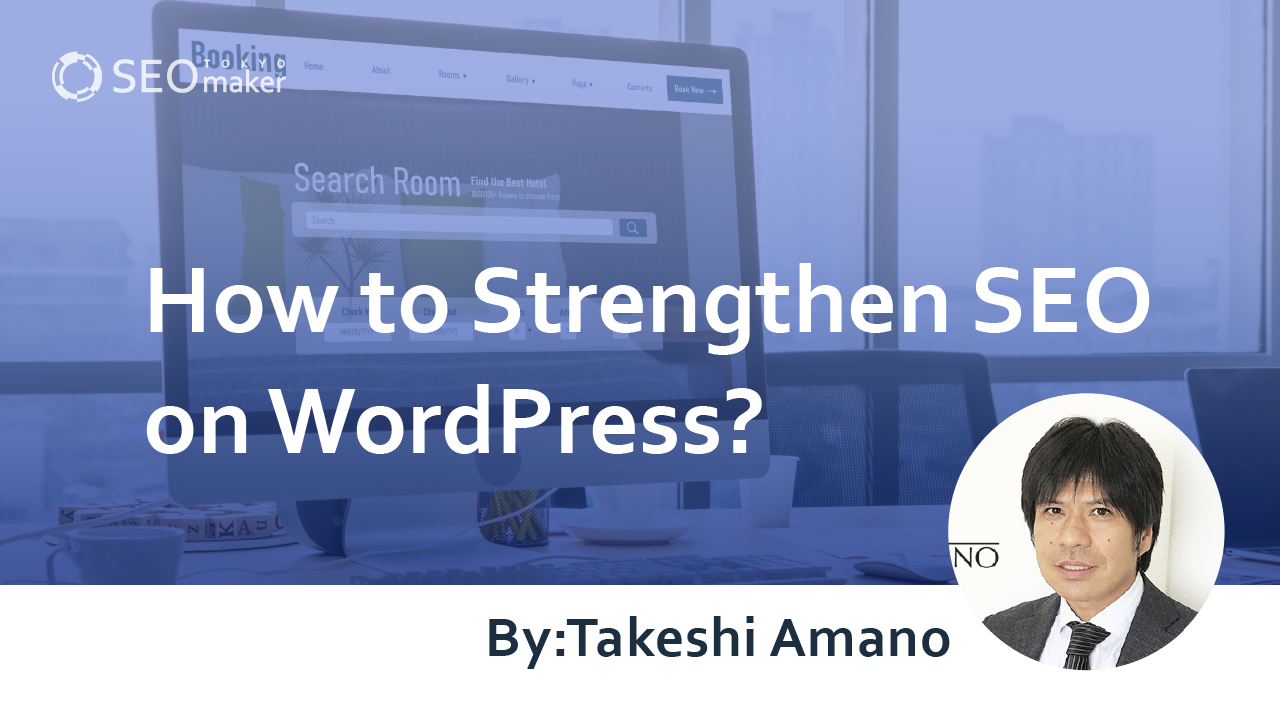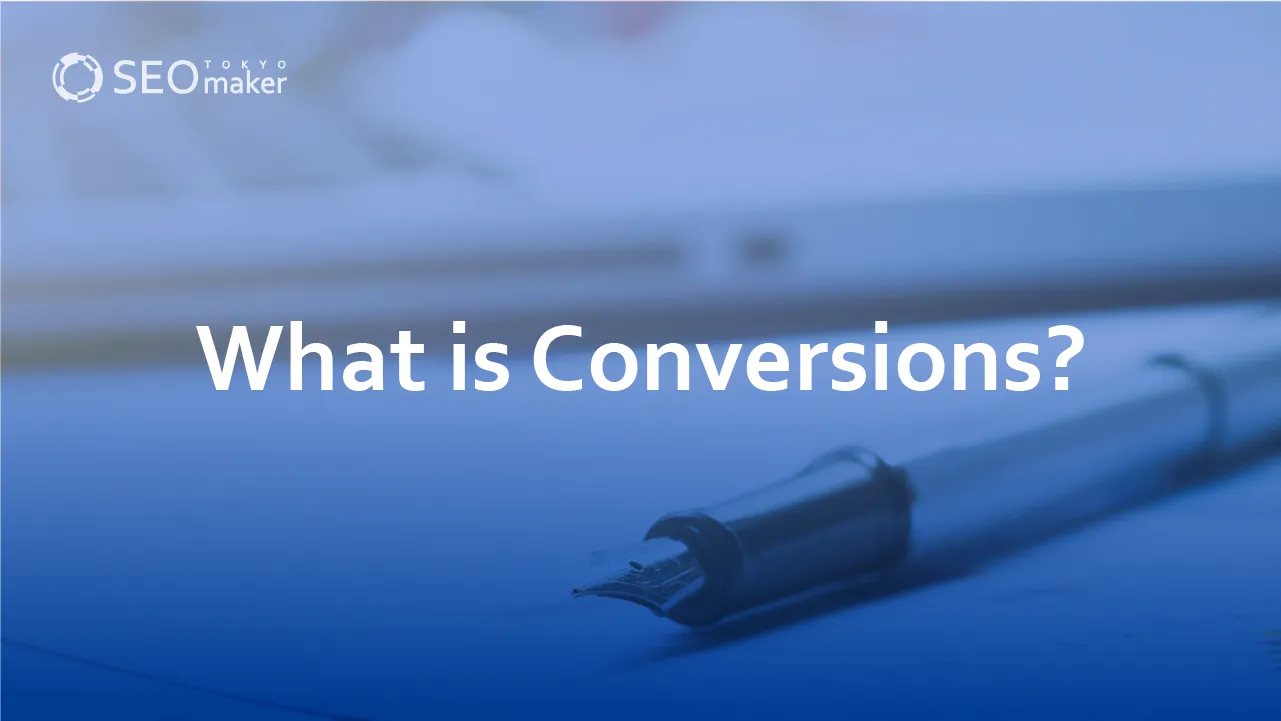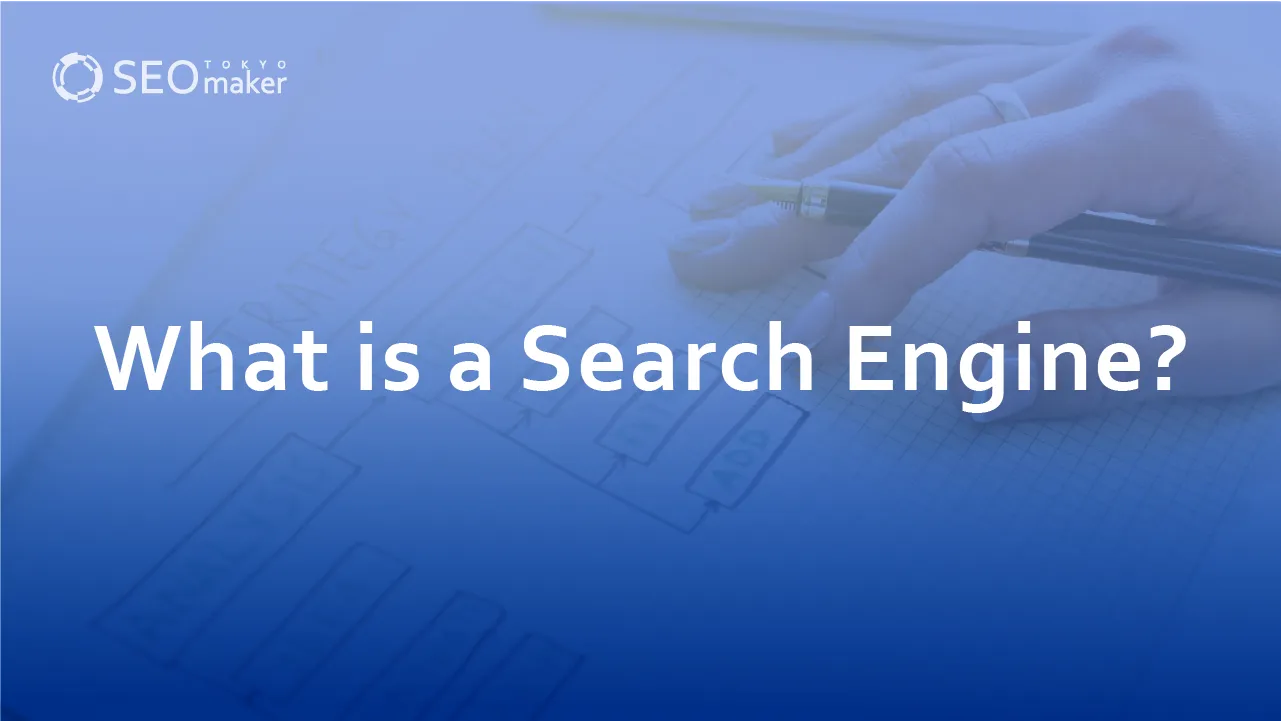How can you strengthen SEO on WordPress? : Introduction of Plugins
contents
- 1 What is WordPress?
- 2 WordPress’s Dominant Market Share
- 3 The Myth of WordPress Being Especially Strong for SEO
- 4 How to Enhance SEO on WordPress
- 5 Three Free WordPress Themes Strong in SEO
- 6 Three Paid WordPress Themes Strong in SEO
- 7 Five Recommended Plugins to Strengthen WordPress SEO
- 8 10 Points to Strengthen WordPress SEO
- 8.1 Permalink Settings
- 8.2 URL Canonicalization
- 8.3 Noindex Setting / Preventing Low-Quality Content from Being Indexed
- 8.4 Responsive Design Settings
- 8.5 Title and Meta Description
- 8.6 Setting Up Breadcrumb Navigation
- 8.7 Setting Up Internal Links for Related Articles
- 8.8 Submitting a Sitemap
- 8.9 Speeding Up Page Load Times
- 8.10 Handling Comment Spam
- 9 Summary

Many who start managing websites with WordPress find themselves wanting to implement effective SEO strategies to achieve higher search rankings. There are various approaches to SEO on WordPress, from doing it yourself to installing specific themes and plugins.
In this article, we will introduce five specific ways to enhance SEO on WordPress, focusing on themes and plugins that are specialized for SEO.
What is WordPress?
WordPress is one of the many content management systems (CMS) available worldwide.
While websites can be coded manually in HTML, using a system with pre-designed templates allows for faster and more accurate content production.
One of the key advantages of WordPress is that it comes equipped with many essential features right from the start, so even without any customization, it can still be highly effective.
The chart above, sourced from Usage statistics of content management systems by W3Techs.
It shows that as of June 2021, WordPress holds a 65% share among CMS platforms and is used by approximately 42% of all websites. This makes it overwhelmingly the most used tool, both in popularity and practicality.
The Myth of WordPress Being Especially Strong for SEO
There is a misconception that WordPress is particularly strong for SEO. However, this isn’t exactly true. In May 2019, the following exchange took place on Twitter.
Does google give a ranking boost to HTML websites compared to those made on WordPress???
A Page is a page.”
This interaction became noteworthy because the respondent was John Mueller from Google. His reply implies that it’s not WordPress itself that makes a site strong or weak in SEO, rather, its high usage rate might make it appear more frequently in top search results.
How to Enhance SEO on WordPress
WordPress, in its initial setup, does not come fully equipped for optimal SEO. Therefore, to strengthen SEO on WordPress, site operators need to implement their own SEO strategies. Additionally, configuring WordPress themes and installing plugins can be effective ways to enhance SEO.
In this article, we’ll delve into methods to boost SEO on WordPress.
Install an SEO-Friendly Theme
One of the most recommended strategies for WordPress SEO is to install a theme that is robust in SEO.
WordPress offers over 7,000 themes, but their SEO capabilities can vary significantly. Thus, it’s crucial to choose a theme that is well-optimized for SEO if you aim to rank your website higher in search results.
Criteria for an SEO-friendly WordPress theme are as follows.
- Fast page loading speed
- Mobile responsiveness
- Pre-installed features like breadcrumb navigation and social media share buttons
- Comprehensive internal SEO measures
The advantage of setting a theme is that it allows you to implement necessary SEO adjustments collectively.
Before installing a theme, make sure to check its SEO features to ensure its optimized right from the start.
Install a Strong SEO Plugin
If you want to focus on specific SEO improvements that are lacking, installing a powerful SEO plugin is advisable.
While setting a theme can involve applying SEO measures collectively—for better or worse—this can sometimes slow down your website’s load time. However, with plugins, you can reduce the burden on your website.
Even if you’re using a theme that isn’t strong in SEO, you can compensate by installing the necessary plugins. If you like the design of a theme but it falls short in SEO, make effective use of plugins to enhance your site’s SEO performance.
Enhancing SEO
On WordPress, you can strengthen SEO without installing themes or plugins. The benefit of doing SEO yourself is that it won’t affect the loading speed of your website.
Themes and plugins are extensions for WordPress, so they inevitably impact the website. However, doing SEO manually minimizes the load on your site, making it less affected compared to using themes or plugins.
That said, you need knowledge of WordPress to configure everything yourself. If you find it challenging to handle the settings independently, it’s advisable to use themes or plugins.
Three Free WordPress Themes Strong in SEO
Among the many themes available on WordPress, numerous free themes are well-optimized for SEO. Some free themes are as feature-rich as paid ones, making them a great option if you want to optimize without incurring costs. Here, we will explain three free WordPress themes known for their strong SEO capabilities.
Cocoon
Cocoon is a highly popular theme, often competing for the top spot among WordPress themes.
Cocoon’s features include up-to-date functionalities and built-in SEO measures. Its customization options rival those of paid themes, allowing you to create a unique website even with a free theme.
Additionally, Cocoon has a large user base, so there are many articles explaining how to configure it, providing reassurance. It’s a user-friendly theme, even for those new to website management or without much WordPress knowledge.
Xeory
Developed by Bazubu, which specializes in content marketing, Xeory comes in two types: “Xeory Extension” for sites and “Xeory Base” for blogs. This makes it versatile for both individual and corporate websites.
Beyond SEO, it includes site designs geared towards generating inquiries, reflecting Bazubu’s strong marketing focus. This theme is especially recommended for those considering content marketing.
LION BLOG
LION BLOG is a free theme known for its stylish design and comprehensive SEO measures, even without plugins. It supports AMP (Accelerated Mobile Pages) for fast mobile display, ensuring quick page loading times.
However, updates for LION BLOG stopped in February 2018, so if updates do not resume, security might weaken. Although it’s a paid version, the successor to LION BLOG, “THE THOR,” is also highly regarded, so check it out if you’re interested.
Three Paid WordPress Themes Strong in SEO
Paid themes not only excel in SEO but also offer a much broader range of functionalities compared to free themes. Many successful affiliate marketers use paid themes, so if you’re serious about website management, these are worth considering. Here, we’ll introduce three highly recommended paid WordPress themes known for their strong SEO capabilities.
JIN
JIN is a theme created by “Hitsuji-san,” a successful affiliate marketer. In addition to basic SEO measures, it features a simple yet user-friendly site design.
Regular updates and new features are added, making it easy to use from a blogger’s perspective. Some themes have too many customization options, making them difficult to handle, but JIN is ideal for those seeking a simple yet powerful SEO theme.
SANGO
SANGO, designed with the concept of a “comfortable WordPress theme,” offers a design with vibrant colors and a friendly impression. It includes strong internal SEO measures and mobile compatibility, and features over 40 heading designs and buttons, making it functionally rich.
Created by “Saruwaka-kun,” who has over 10,000 Twitter followers, SANGO has a solid support system, including its official Twitter account. Priced at a relatively affordable 11,000 yen (tax included), it’s recommended for those considering a paid theme for the first time.
ACTION (AFFINGER 6)
AFFINGER 6 is a highly popular paid theme, particularly tailored for affiliate marketing. It offers extensive customization options for site design and functionality, making it easy to enhance originality.
However, the multitude of customization features can be overwhelming, and the need for AFFINGER 6-specific plugins may be considered a disadvantage for beginners.
Despite this, AFFINGER 6 is widely used by many high-ranking websites, making it a recommended theme for those serious about increasing traffic and monetizing their website.
Five Recommended Plugins to Strengthen WordPress SEO
While some plugins have paid versions, many SEO-focused plugins are available for free. Implementing even one of these plugins can cover overall SEO measures, so choose the one best suited to your website and install it.
Here, we’ll detail five powerful WordPress plugins for SEO.
All in One SEO
All in One SEO is a free plugin that covers nearly all essential SEO elements.
The following are its key features.
- Title and meta tag settings
- Sitemap settings
- AMP settings
- Social media settings
- Noindex settings
- Robots.txt settings
A notable feature is the automatic submission of Google XML sitemaps, which helps operators managing large amounts of content to streamline indexing.
For those new to website creation, All in One SEO is an excellent plugin to start with.
Premium SEO Pack
Premium SEO Pack is available in both free and paid versions, but the paid plan is recommended due to its broader range of configurable features. It stands out by providing specific SEO measures compared to other plugins.
Key features include
- Google Analytics settings
- CSS and JavaScript code settings
- Sitemap settings
- Bulk title and meta tag settings
- Error page settings
Its strength lies in detailed site analysis, such as search rankings and page load speeds, making it ideal for those wanting to cover advanced SEO measures.
Yoast SEO
Yoast SEO is a globally popular plugin that offers comprehensive SEO capabilities even in its free version. Frequent updates ensure you can quickly implement the latest features.
The following are its key features.
- Title and meta tag settings
- Sitemap settings
- Breadcrumbs settings
- Social media settings
- SEO analysis
- Content analysis
The content analysis feature evaluates keyword density and readability from a user’s perspective. Yoast SEO not only addresses surface-level SEO but also enhances the quality of content, which is crucial for SEO effectiveness.
The SEO Framework
The SEO Framework is a free plugin that automatically optimizes SEO. It covers basic SEO measures and offers more than 100 features.
The following are its key features.
- Title and meta tag settings
- Sitemap settings
- SEO analysis
- AMP settings
- Social media settings
The SEO analysis function allows users to easily identify areas lacking SEO optimization. For example, it highlights in color if a keyword is not included in an article’s title. This visual indicator of deficiencies is a unique strength of this plugin.
Rank Math
Rank Math is a free plugin that covers all aspects of SEO and displays an SEO score for each piece of content. Since there is no paid version, there are no feature limitations, and the visual SEO score display helps users identify necessary SEO measures.
The following are its key features.
- Integration with Google Search Console
- Title and meta tag settings
- Sitemap settings
- SEO score display
- Redirect settings
Unlike other strong SEO plugins, Rank Math includes a redirect feature. The SEO score display not only allows users without SEO knowledge to implement strategies but also helps them learn and retain SEO knowledge through Rank Math.
10 Points to Strengthen WordPress SEO
- Permalink settings
- URL canonicalization
- noindex settings
- Responsive design settings
- Title and meta description
- Breadcrumb navigation
- Internal links and related articles
- XML sitemap
- Site speed optimization
- Handling comment spam
Sometimes themes may not offer sufficient SEO measures, or you might not be able to install strong SEO plugins on WordPress. In such cases, it’s essential to know how to implement SEO strategies yourself.
Here, we’ll explain 10 strategies to enhance WordPress SEO in detail.
Permalink Settings
One of the first settings you should configure in WordPress is the permalink. Most other settings can be changed later without much impact, but changing permalinks after content has been published can alter URLs and affect page evaluation.
There are six configurable options, but unless you have a specific reason, it’s best to use a custom structure like /%category%/%postname%/, connecting the category and post name.
Default: /?p=123
Day and name: /2021/06/22/post-name/
Month and name: /2021/06/post-name/
Numeric: /archives/123
Post name: /post-name/
Custom structure: Custom settings
While permalink settings don’t significantly affect search rankings, it’s recommended to change them from the default for easier management and analysis.
URL Canonicalization
URL canonicalization involves standardizing the format of URLs, such as whether or not to include “www” or “index.html,” to prevent splitting page authority.
You can easily set this up by adding rules to your .htaccess file, but be cautious: adding to the default settings could lead to overwrites during updates. Instead, place your changes before or after the initial settings.
# BEGIN WordPress
<IfModule mod_rewrite.c>
RewriteEngine On
RewriteBase /
RewriteRule ^index\.php$ – [L]
RewriteCond %{REQUEST_FILENAME} !-f
RewriteCond %{REQUEST_FILENAME} !-d
RewriteRule . /index.php [L]
</IfModule>
# END WordPress
Noindex Setting / Preventing Low-Quality Content from Being Indexed
In SEO, if you have low-quality content, it’s effective to exclude it from the index to avoid lowering the overall evaluation of your website.
To exclude such content from indexing, use “noindex” or “canonical” tags within the head section of your pages. This tells search engines to exclude these pages from the index and keep them out of search results.
If you consider some of your content low-quality, try excluding it from the index. Then review and rewrite the content to ensure high-quality content is indexed.
Responsive Design Settings
When designing a site on WordPress, using a responsive theme is essential. Most current WordPress themes are responsive, ensuring that the site displays correctly on mobile devices without any issues.
However, if you use a custom theme or make significant customizations, the site might not be responsive.
In such cases, use plugins or set URLs in .htaccess to differentiate between devices.
Title and Meta Description
While WordPress provides a section to input the title when creating content, finding where to set the meta description can be challenging depending on the theme, and sometimes it’s not available at all.
Both the title and meta description are crucial for SEO and should be unique to each page. If the theme doesn’t support these settings, you should use plugins mentioned later.
Installing breadcrumb navigation on your website serves as a navigational aid for users, making it effective for SEO.
For instance, if a user clicks on multiple internal links within your content, they might lose track of their current location on the website. However, with breadcrumb navigation, users can easily identify their current position at a glance, improving usability.
Additionally, it helps crawlers understand the hierarchy and structure of your website, so it is highly recommended to set it up.
Related Articles: What is Breadcrumb Navigation? Benefits and Setup Methods
Setting Up Internal Links for Related Articles
If you have articles related to your content, it’s beneficial to actively link to them. Adding internal links to related articles not only promotes other content to your readers but also serves as an effective SEO strategy.
Especially effective are links from articles already ranking high in search results, as these can boost the page ranking of the linked pages.
No special measures are needed when setting up links, but ensure they are placed where users can easily see them. Using text decorations or link cards can also be effective.
Related Articles: What are Internal Links? Key Points for Strengthening SEO with Internal Links
Submitting a Sitemap
One of the key SEO strategies is submitting a sitemap to search engine crawlers. Crawlers are robots that index websites on the internet.
Normally, crawlers visit newly published pages one by one to index them, which can take several days after the page is published.
However, by creating and submitting a sitemap, you can inform search engines about new pages, speeding up the indexing process. This also signals to crawlers that your site is well-structured and easy to navigate, leading to effective SEO results.
Related Articles: Do Sitemaps Enhance SEO? Understanding the Risks and Benefits
Speeding Up Page Load Times
Site speed is crucial for usability and also has SEO benefits due to factors like Core Web Vitals.
Common optimizations include compressing images, setting up caching, and minifying HTML and CSS, which can often be done easily with plugins.
Improving page load speed is essential for strengthening WordPress SEO. Pay attention to this, especially if you’re using themes or plugins, as they can inadvertently burden your website.
If themes or plugins are slowing down your site, consider these measures.
- Remove or change themes/plugins
- Compress images used in content
- Install caching plugins
Addressing load speed issues promptly will help create a stress-free experience for users.
Related Articles: How to Improve Page Load Speed
Handling Comment Spam
Given the widespread use of WordPress, spam countermeasures are necessary.
While you can install plugins that automatically delete spam comments, a simpler solution is to disable comments altogether, eliminating the extra hassle.
Summary
To implement SEO strategies on WordPress, you need to either install themes and plugins or manage the optimization yourself. Themes and plugins offer an easy way to improve SEO, but they can sometimes burden your website and affect its usability. If you want to maintain good usability, it’s advisable to handle SEO manually. Choose the method that best suits your website to strengthen your SEO on WordPress effectively.










![What is a Description? Explaining the Meaning, Writing Style, and Changing Word Count – [2023 Edition]](https://www.switchitmaker2.com/en/wp-content/uploads/2024/09/what-is-description.webp)










